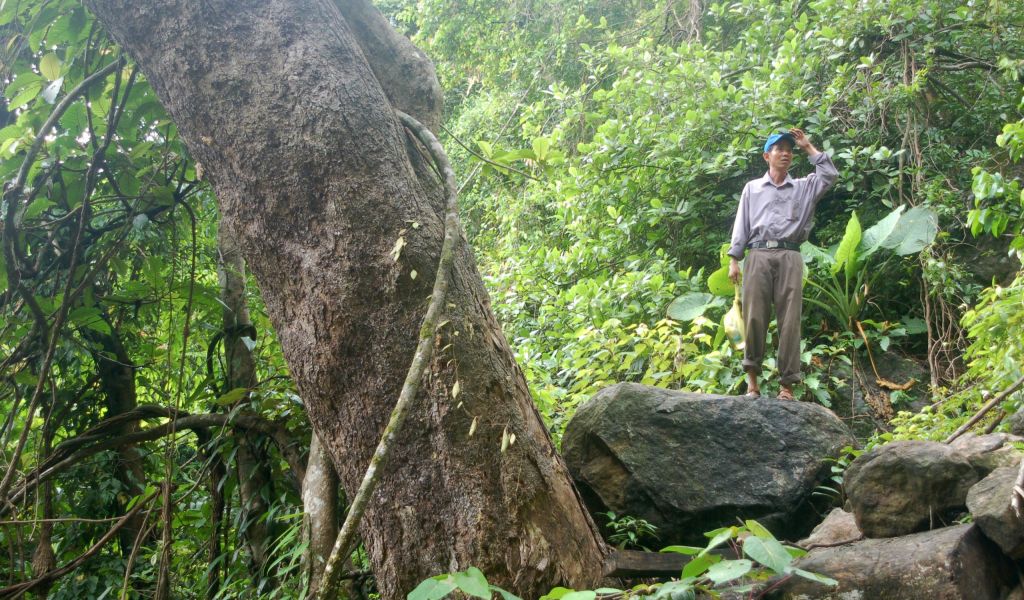REDD Q&A

REDD Q&A
For the last couple of days, I have been asking REDD stakeholders from Asia-Pacific the following two questions:
- What are the two top priorities that you would like to see reflected in the final REDD text?
- What has been the most positive development and what has been the most negative development in the negotiations so far?
What are people saying?
“If I don’t have land, how can I benefit from REDD?” – Vu Thi Hien, Vietnam
“The UNFCCC is part of the UN family. They cannot be selective about respecting rights.” – Joan Carling, Asia Region
“There’s too much lying here.” – Teguh Surya, Indonesia
Read on for the full interviews.
Vu Thi Hien - Director, Center for Research and Development in Upland Areas (CERDA), Vietnam
Top priorities for the final REDD text:
Acknowledge the need for land allocation to indigenous peoples as part of REDD
- “People are talking about equal benefit sharing and participation, but no one is talking about how this can be achieved. If I don’t have land, how can I benefit from REDD?”
- “I agree that land allocation must be done at the national level, but the UN and donor countries need to put the question to REDD country negotiators. Land allocation reform should be a condition for receiving funds for REDD.”
Get more specific about capacity building that targets indigenous peoples
- “REDD is equally open to private companies and indigenous peoples, but indigenous peoples are at a disadvantage when it comes to capacity and access to the information needed to benefit from REDD. Capacity building at the grassroots level requires very specific approaches. A REDD agreement should specify who will receive funding for capacity building. Financing for capacity building in areas where indigenous peoples are living should be fund-based.”
Require transparent MRV and ensure that information about financial flows is easily accessible
- “People need to be able to have regular access to information about the REDD rewards that they can expect to receive for their land. This could be a database that anyone can access anytime that lists the names of individual land owners, the land they own, the amount allocated for that piece of land from year to year and when they can expect to receive the funds.”
Positive Development: “In Vietnam, the situation for indigenous peoples is improving. The Vietnamese government recognizes all citizens as indigenous, however efforts are being made to address land claims of ‘ethnic minorities’ and civil society involvement in the UN-REDD programme is growing.
Negative Development: “There is very little discussion in Copenhagen of how REDD will be effectively implemented.”
Joan Carling - Secretary General, Asia Indigenous Peoples Pact (AIPP), Asia Region
Top priorities for the final REDD text:
Recognize indigenous peoples rights with reference to the UN Declaration on Indigenous Peoples’ Rights as a safeguard
- “The Declaration on the Rights of Indigenous Peoples is a UN declaration. The UNFCCC is part of the UN family. They cannot be selective about respecting rights.”
- “REDD is a matter of life and death for indigenous peoples.”
Include language that does not allow for conversion of natural forest i.e. “sustainable management of forests,” not “sustainable forest management.”
Positive Development: "Language recognizing indigenous peoples’ rights remains in the current version of the REDD text."
Negative Development: "The omission of indigenous peoples’ rights and safeguards language from the Shared Vision text (the text laying out the principles and framework for all of the Bali Action Plan). We got it in between Bangkok and Barcelona and now it’s gone! If there isn’t any recognition of indigenous rights in the Shared Vision, how can we operationalize them?”
“Now that a new draft Shared Vision text is expected due to the deadlock over the current text, we are preparing a draft ‘Copenhagen Declaration’ or whatever it will be called. ”
General Observation
“There is already an imbalance even in the negotiations themselves. Developing country delegations are much smaller in numbers than those from developed countries. Developing country governments, some of our strongest allies, are spread very thin and not able to participate in as many of the informal working groups. They also have less time to go over the various texts to prepare inputs as a result.”
Teguh Surya – Forest Campaigner, Walhi (Friends of the Earth Indonesia), Indonesia
Top priorities for the final REDD text:
Postpone the process in order to arrive at a document that addresses the underlying causes of deforestation.
- “We cannot accept REDD if the document is not representative of the problems faced by Indonesia."
Recognize the rights of indigenous peoples.
Include global definitions of ‘forest’ and ‘deforestation’ that clearly distinguish forest from plantations.
Positive Development: “Being here and having the opportunity to be in Copenhagen at the negotiations and learn first hand the real situation of the negotiations.”
Negative Development: “Lying. There is too much lying here. If delegations are not honest about underlying problems, REDD cannot work and countries will not continue to provide finance to halt deforestation.”

